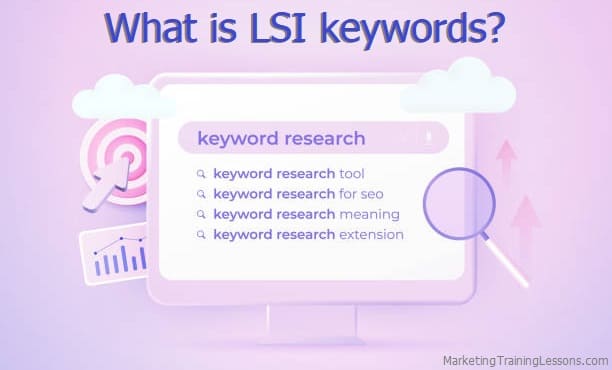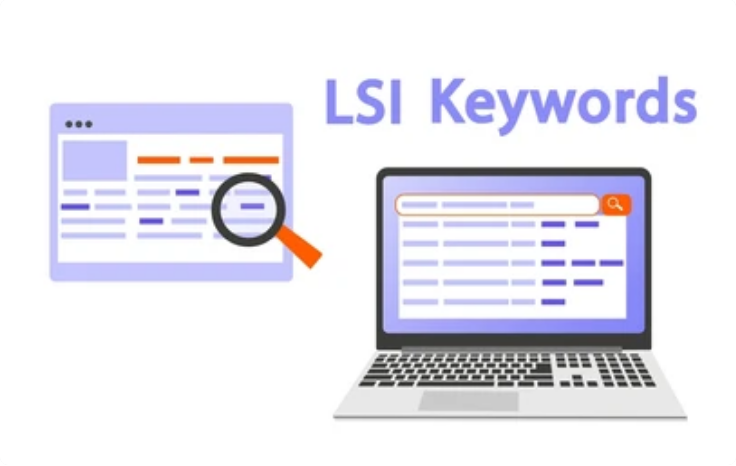What Is Lsi Keywords – Boost Your Seo Ranking

LSI Keywords: The Secret to Boosting Your SEO Ranking
Are you tired of struggling trying to get your website to rank higher in search engine results? Do you feel like you’ve tried everything, but still can’t seem to crack the code?
Well, have no fear because LSI keywords are here! If you’re not familiar with LSI (Latent Semantic Indexing) keywords, then listen up. They could be the secret ingredient that’s been missing from your SEO strategy all along.
This secret weapon of SEO experts can boost your search engine ranking and make it easier for users to find your content.
Incorporate these related phrases into your content to give search engines a better understanding of what your page is about. It will also improve its relevance to users.
In this blog post, we’ll dive into what Latent Semantic Indexing keywords are and how they can help boost your ranking on search engines. Get ready to take notes because this info will take your SEO game to the next level!
Introduction to What is LSI Keywords
Let’s first find out what is LSI keywords. LSI keywords are those that are related to your main keyword, but are not necessarily the same. For example, if you are writing about “dogs,” some related LSI keywords could be “pets,” “animal,” or “breed.”
Using Latent Semantic Indexing keywords in your content can help boost your SEO ranking. It shows search engines that your content is relevant and informative. It also helps you rank for more long-tail keywords, which can bring in more targeted traffic.
To find LSI keywords, you can use a tool like Google AdWords Keyword Planner or LSIGraph.
What Are Latent Semantic Indexing (LSI) Keywords?
LSI keywords are simply a matter of using related terms in your content to help Google better understand the topic of your article.
Including LSI keywords in your content helps Google to see relationships between terms and concepts, and this can ultimately lead to better SEO ranking.
There’s no magic number of LSI keywords to include in your content. A good rule of thumb is to use a variety of related terms throughout your article.
So, if you’re writing about the benefits of yoga, some related keywords you might use could be “exercise”, “meditation”, “mind-body connection”, etc.
If you want to learn more about how to find and use LSI keywords in your content, check out this helpful guide from searchlogistics.com.
Benefits of LSI Keywords for SEO
Latent Semantic Indexing keywords can help improve your SEO ranking by making your content more relevant to search engines.
By using these keywords in your content, you can tell search engines what your page is about and help them index your pages better.
Not only can this lead to higher rankings in search engine results pages (SERPs), but also more traffic to your website.
Now that you have a better understanding of what is LSI keywords, let’s have a look at the benefits. There are many benefits of using LSI keywords for SEO. Here are some of the most important ones:
1. Improve SERP Rankings: As mentioned above, LSI keywords can help improve your rankings in SERPs. This is because they make your content more relevant to search engines, which leads to better indexing and higher SERP rankings.
2. More Traffic: Higher SERP rankings usually mean more traffic to your website. If you can get your pages ranked higher in SERPs, you’ll likely see an increase in the number of visitors coming to your site.
3. Better User Experience: Using LSI keywords can also improve the user experience on your website. This is because they help make sure that the content on your site is relevant to what users are searching for.
This means that users are more likely to find what they’re looking for on your site, which can lead to better engagement and lower bounce rates.
4. Increased Sales: Ultimately, the goal of any business is to make sales. And, using LSI keywords can help you get there.
By improving SERP rankings and providing a better user experience, your website can attract more visitors and increase the number of sales you’re able to make.
How to Use LSI Keywords in Content
If you want to improve your SEO ranking, start using Latent Semantic Indexing keywords in your content. LSI keywords are related words and phrases that search engines use to understand the topic of a piece of content.
These keywords help Google (and other search engines) match your content with relevant searches. To find LSI keywords, you can use a keyword research tool like Google Keyword Planner or LSIGraph.
Once you have a list of LSI keywords, try to work them into your content naturally. Use them in titles, subtitles, and throughout the body of your article.
Remember, don’t stuff your content with too many keywords—this will hurt your SEO ranking. Focus on writing quality content that uses LSI keywords naturally. This will help you improve your SEO ranking and attract more organic traffic to your site.

Tools and Resources for Finding Relevant Keywords
There are a number of tools and resources that can be used to find relevant LSI keywords for your website or blog. Here are just a few:
1. Google AdWords Keyword Planner – This tool allows you to research and find keywords related to your products or services.
2. Google Trends – This tool lets you see how popular certain keywords are over time.
3. semrush – This is a paid keyword research tool that provides detailed data on search volume, competition, and cost-per-click for various keywords.
4. Wordtracker – Another paid keyword research tool, Wordtracker provides detailed information on keyword difficulty, search volume, and more.
5. HubSpot’s Blog Topic Generator – This free tool helps you come up with ideas for blog posts by entering in a few seed keywords.
Tips on Optimizing Your Content with LSI Keywords
It’s no secret that keywords are a major factor in SEO ranking. Search engines use LSIs to better understand the content on a page.
By including these keywords in your content, you can signal to Google that your page is relevant for a given topic. As a result, your page is more likely to show up in search results for related queries.
There are a few different methods to find these keywords:
• Use Google Suggest: Type in a keyword related to your topic, and see what Google suggests as you type. These suggestions are based on popular searches, so they’re a good indicator of relevant LSI keywords.
• Check out the “Searches related to…” section at the bottom of the SERP: This section includes other popular searches related to your original query. These are also good potential LSI keywords to include in your content.
• Use an LSI keyword tool: There are several paid tools available that can help you generate LSI keywords for your content. Some popular options include SEMrush, Ahrefs, and Moz Keyword Explorer.
Here are a few tips to get the most out of your LSI keywords:
• Include the keywords naturally in your copy. Don’t stuff your content with too many LSI keywords; it will make it difficult to read and won’t be helpful for SEO.
• Use synonyms and related words when possible. This will help avoid keyword stuffing and give your copy more natural-sounding flow.
• Include the main keyword or phrase in addition to the LSI keywords. This helps search engines understand the topic of your page and determine its relevance to related searches.
By optimizing your content with LSI keywords, you can improve SEO rankings. It will also create richer, more informative content that resonates with readers.
Conclusion
Now you know what is LSI keywords. LSI keywords are an effective way to boost your SEO ranking and stand above the competition.
You can take advantage of the power of LSI keywords to improve your search engine optimization efforts.
You need to understand what LSI keywords are, identifying them in your content, and making sure they appear in the right places throughout your website or article.
With careful research and strategic implementation of LSI keywords on a regular basis, you can quickly see improved results for all of your digital marketing campaigns.
Thanks for reading this article about what is LSI keywords. Put the info to work and watch your rankings go up!

